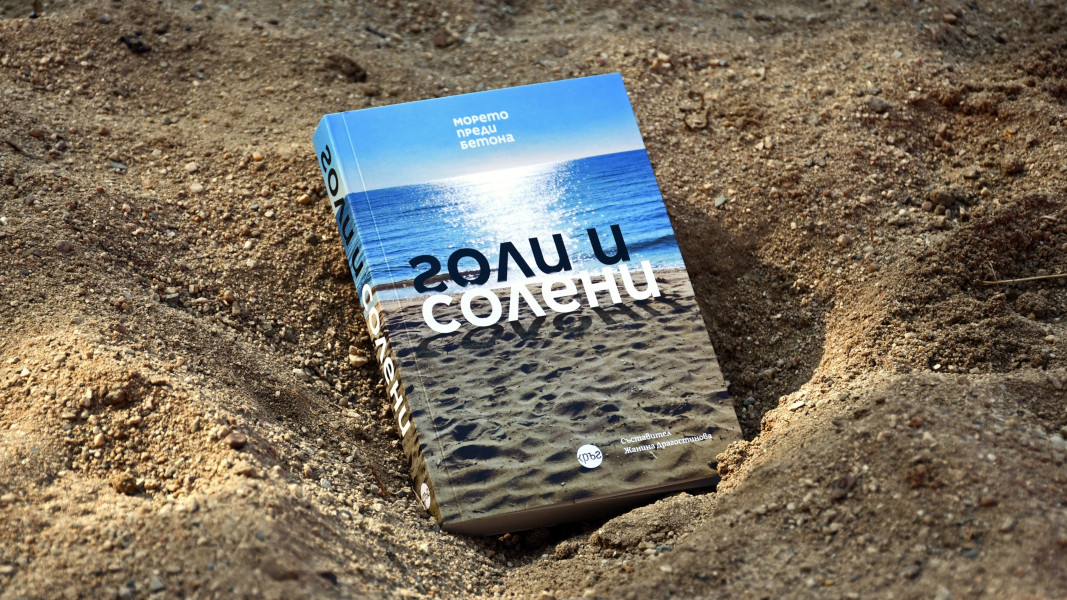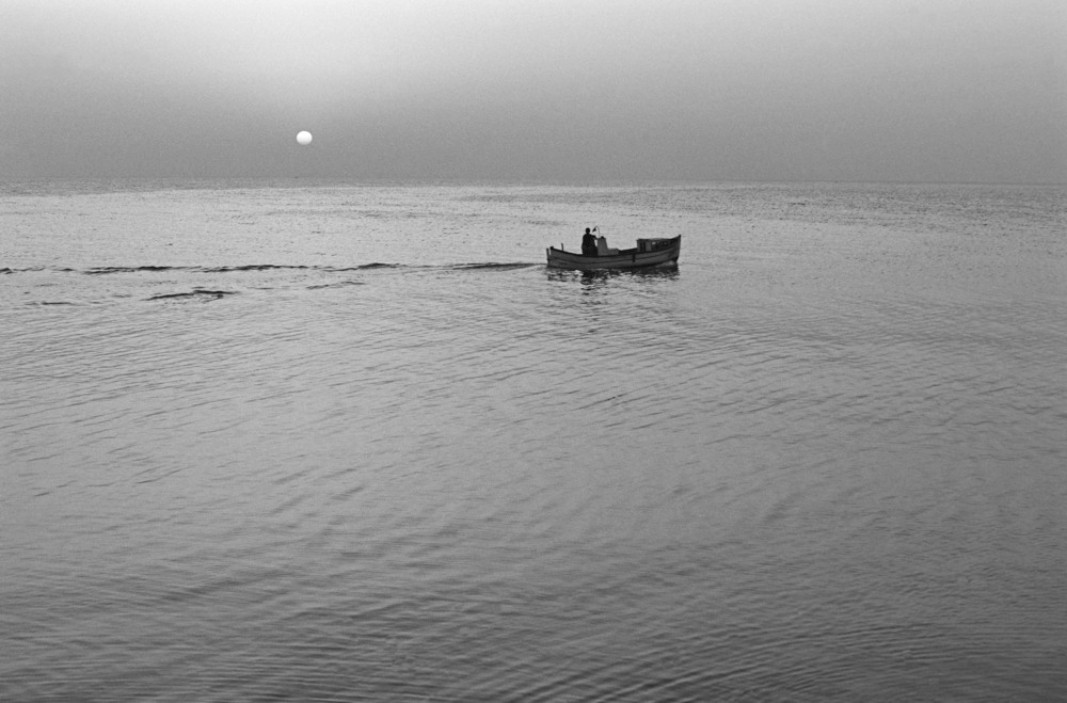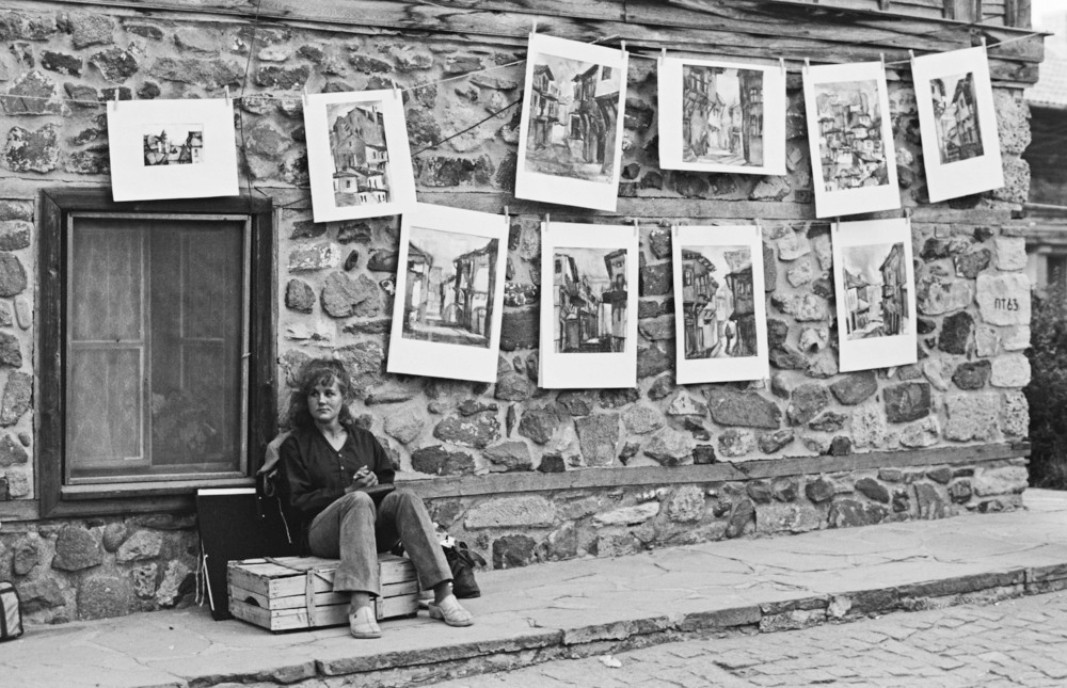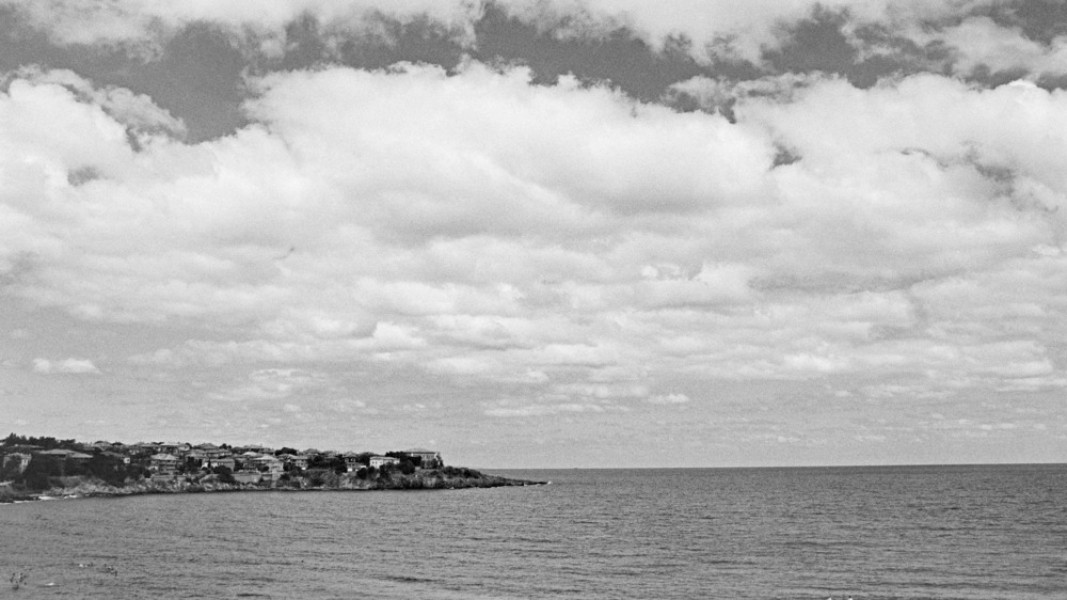"...We walked naked, hungry, salty and happy,” says journalist and writer Ivo Berov describing his memories of the Bulgarian seaside from the past. "Today it is hard to understand the unique thrill of having a chance to buy a bottle of whiskey, of trying something that came from the other side of the Iron Curtain!" - journalist Ivan Bakalov continues. "And then you cure the hangover from another evening of "freedom" by jumping in the sea,"satirist Mihail Veshim said smiling. Many more summer stories from Bulgaria’s past are collected in the book "Naked and salty (the sea before the concrete)" by journalist, writer and translator from the German language Zhanina Dragostinova. The collection contains the stories of 23 journalists, artists, intellectuals and politicians.

"The period covered by the book is quite long - there are stories from the 1960s to the 1990s,” Dragostinova has told Radio Bulgaria. “I just wanted to make a collection of personal stories in which people of different generations could tell their children and grandchildren about the way they were vacationing in their youth. At the same time, when I read all the texts collected, I discovered that there was a general feeling of contentment and of happiness when being near the sea, which was otherwise difficult to obtain back then."
For many Bulgarians, vacation by the sea unleashed a feeling of freedom, Zhanina says. The journalist adds that the stories in the book are not nostalgia for socialism. You can't be missing something that took away your rights, she says. There is nostalgia but it is for the feeling of freedom that the vastness of the sea gives you. Zhanina is from Varna and knows the sea well.

"We in Varna did not think that going to the local beach was vacation. My father and I used to go to the beach in Obzor, to the south. When I grew up and started going on vacations myself, I again chose the camping sites to the south. Somehow, the southern part of the coast symbolized more of that freedom and emancipation. But in the book there are stories from the northernmost to the southernmost point of the Bulgarian Black Sea coast.”
Memories of wild camping, the birth of nudism in Bulgaria, fishermen and their full nets, mark the youth of many of today's Bulgarian intellectuals.

"The first campsite I went to was Alepu - the most beautiful place that I have seen on the Bulgarian Black Sea coast,” writer Mihail Veshim says. “The conditions were bad as there was no running water, but there was freedom. I did not know that later the campsite would be bulldozed and construction would start. This would later happen to other places but the process started back then.”
The satirist says that the sadness behind his smile is nostalgia for pure nature, clean sea, for coast that is not over constructed and for calmness that is increasingly difficult to find these days.

"We have heard people saying things like ‘tomatoes were real back then’," Zhanina Dragostinova tells us. “According to me, this is not related to socialism but to the industrialization we see today. For example, we couldn't imagine lying on a sun lounger on the beach. It was a nice feeling to be on the hot sand. Today, people lying on the sand are exceptions. Our entire vacation experience is being industrialized and that's what's different. Of course, there are groups of people who still want to be close to nature, but the problem is that there are fewer and fewer places left for them."

When we talk about summer vacations in socialist Bulgaria, we should mention the guests from other countries. In the text by journalist Panayot Denev, one can read about the summer vacation during which he learned about the construction of the Berlin Wall. "There are other texts that mention Germans who were vacationing in Bulgaria at the time and had to return urgently because their homeland was being divided," Zhanina Dragostinova told us. The book also includes a text by journalist Hans-Dieter Schutt, who was the editor-in-chief of an East-German paper at the time. He writes about his impressions of the Bulgarian Black Sea coast. Like all guests from East Germany back then, he keeps fond memories of our sea coast, Zhana Dragostinova says.
English version: Alexander Markov, Krug publishing house
Robert Joseph Miller, Bulgaria’s Honorary Consul in Nevada, was awarded the prestigious “Golden Laurel Branch” of the Ministry of Foreign Affairs for his exceptional merits in maintaining the diplomatic relations between the US and Bulgaria. The award..
The cool autumn evenings give us a reason to immerse ourselves in the cosy atmosphere of restaurants in Sofia and try new flavours inspired by global culinary trends. Leading Italian travel platform praises Sofia in autumn..
At 04:00 Bulgarian time on October 26, 2025, we must turn our clocks back one hour. This means one more hour of sleep, but it does not eliminate the stress for the body as a result of the change in the biological schedule,..
“The end is near – let’s go out with style!” This is the motto of the 2026 Gabrovo Carnival, marking the start of the so-called fifth season of the..
Forty Bulgarian schools in 22 US states have become a second home for the children of Bulgarian emigrants. They create continuity..

+359 2 9336 661
